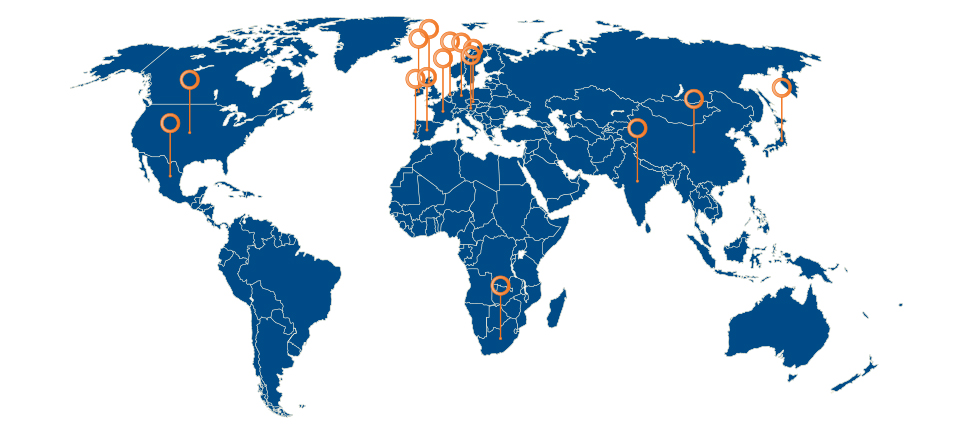This point was well taken, as many of our MBE Group clients are global entities targeting a global audience, or are part of the global supply chain.
Several years ago, we handled a crisis firsthand, where a chemical production plant in Germany caught fire, halting production of a chemical ingredient for plastic pellets used in the creation of car and truck parts, toys, heart stents, aviation components and products for dozens of other industries. This chemical sat at the very beginning of the product supply chain, approximately four or five steps in – depending on the industry – and was critical to producing so many items.
At the time, there was fear that this plant could be shut down for six months, essentially crippling the global plastics manufacturing industry. Luckily, an alternative was found, but not before many companies went into crisis mode, which required communicating with employees, shareholders, suppliers and customers.
The bottom line was that a chemical made in a single plant in Germany affected an entire supply chain of products in multiple industries around the world, and few knew it.
At the Automotive Aftermarket Product Expo (AAPEX) show in 2019, some members of our team attended a keynote presentation by former U.S. President George W. Bush. A point he made multiple times to the audience of several thousand representatives from the world’s largest automotive replacement parts manufacturers was: “what happens in other places affects you.”
That crisis, along with much of our day-to-day work relating to current supply chain issues and other manufacturing challenges, teaches us that communicating globally requires an understanding of who your audience is, along with two essential elements: a streamlined process and consistency of message.
As a member of IPREX – one of the largest independent communications agency networks in the world – MBE Group belongs to a versatile, nimble, experienced and seamless group of more than 70 partner agencies.

Through IPREX, we gain insight on how to understand and reach local, regional and global audiences, and experience by executing marketing campaigns with our partners. In fact, during the past year, MBE Group has worked with multiple partners in the United States, as well as those in Mexico, Ireland, Spain, South Africa, China, France, Germany, England, Japan, India, Singapore and others to launch companies and products, as well as internal initiatives, such as ESG and DEI.
At the recent IPREX Annual Global Conference in Amsterdam, our Asia-Pacific regional partners conducted a session on media relations in their region. It highlighted the distinct differences between countries, as well as within each individual area. For example, The Times of India – the third-largest daily publication in the country, and the largest-selling English-language daily in the world – has more than 80 editions. Having affiliates on the ground in India can help to ensure we are hitting the right contacts at the right outlets, so messages are received by the intended audience.
So, what can you do to ensure your marketing activities hit their targets on a global level?
When you get started, pay close attention to KPIs like engagement rates. Clearly identify the content that your audience engages with so you can get a good feel for what they would like to see more of in the future.
5 Keys to Communicating Globally

1. Understand that your communication is always global
With instant access to news and social media, anyone – anywhere – can see/read what you’re saying. You cannot isolate your efforts to a single area or region. Information flows freely. Once it’s out there, it’s out there.
2. Know your audience
Are you targeting customers, employees, or shareholders? Tailor your message accordingly. If you’re talking to employees, which level? Executives or plant workers? Your executives around the world likely speak English, while many of the plant-level workers may not. If you need translations, use a reputable agency with native speakers, as opposed to software. The agencies will understand the nuances of each country.

3. Be relevant
What is relevant in Singapore may not be relevant in Japan. New York, Washington D.C., and Los Angeles have vastly different news interests. Extrapolate this globally to ensure that you’re providing the right message to the right audience. Connect with colleagues or affiliates in-region to ensure what you have to say matters to their audience.

4. Account for time differences
When pushing news out globally, consider the time zones. Simply blasting out a global release at 11:00 am in Detroit, when your target audience in China is asleep, likely gets lost in the inbox. Stagger the outreach to accommodate your target audience.
5. Budget
This should be an obvious consideration, but distributing news internationally carries a premium. In many cases, MBE Group uses its local affiliates to distribute releases, both to ensure impact (wire releases generally go to bulk inboxes), reduce overall cost (by approximately 75%) and maximize local relationships.
Whether you’re handling a crisis, or launching a company, product, or new initiative on a global or regional level, ensuring effective and relevant localized communications is essential.
Talk to us to learn how we can help.



